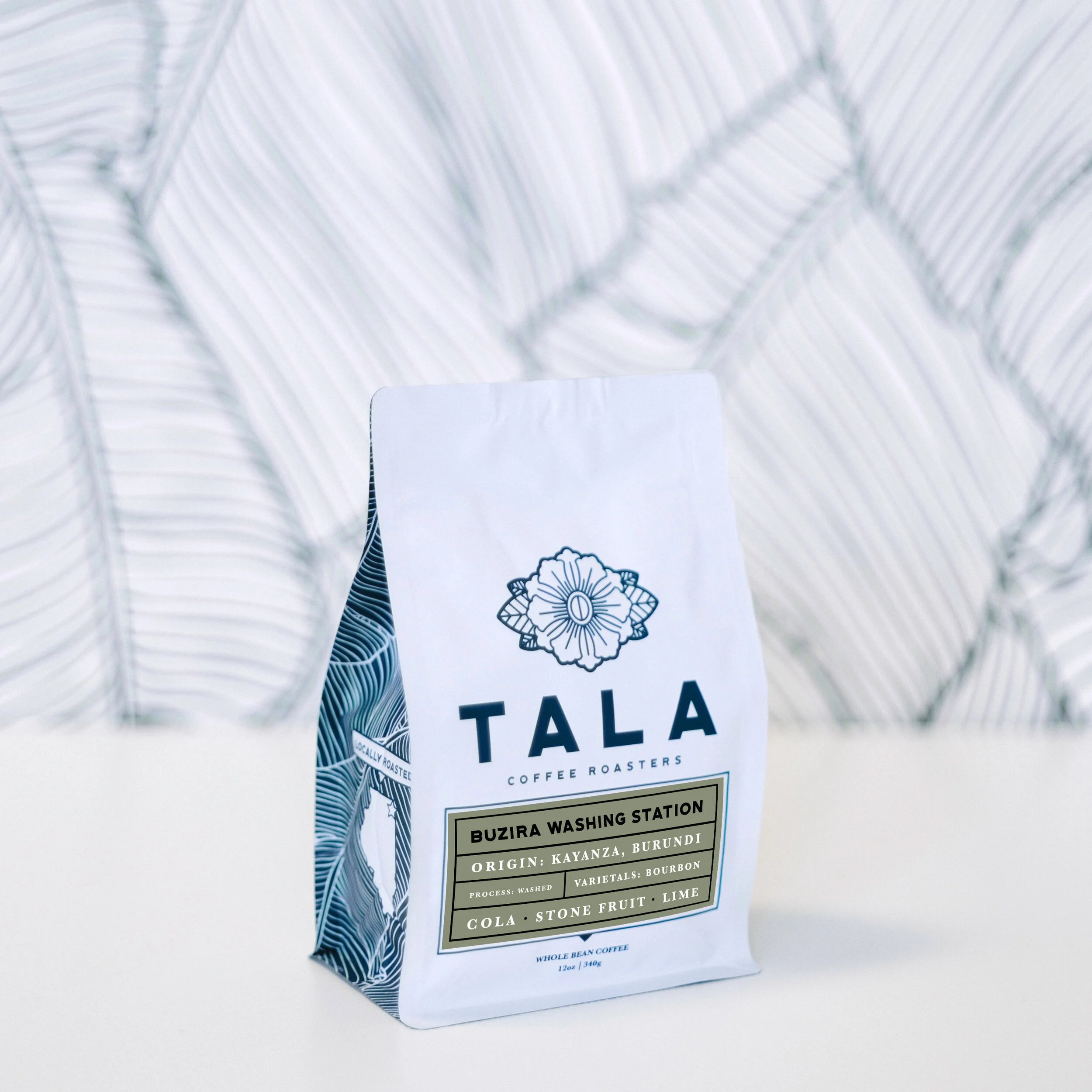
The Tala Blog
Featured Article
Winter Drink Menu 2026
Letting go of the holiday drinks feels easier when winter brings a lineup this good. Our 2026 Winter Seasonal Drinks lean into warmth, balance, and depth—built for cold days and slower moments. Read on and find the winter drink you’ll be craving next.
Dialing In: Getting the best out of Your at-home Pour-Overs
This blog aims to equip you with the skills to understand troubleshooting and dialing in your pour-overs simply by taste.
La Union: Nariño, Colombia
Contrary to popularly held ideals, modern day, specialty Colombia coffees produce more than just boring, one-liner cups. Advances and implementation of new growing and processing methods have drastically improved their quality and consistency. This offering from La Union showcases this well with big, syrupy cooked strawberry flavors that mingle with familiar sweet tones of chocolate sauce, butterscotch, and caramel. It’s an incredibly balanced and refined “union” of flavors that are sure to please any palette.
Buzira Washing Station: Kayanza, Burundi
The members of the Tala Team collectively are all big fans of coffees from Burundi, and naturally are very excited about having another one hit the shelves and pour over grinders. We love them for their balance and drinkability, while having unique complexity of flavor thats unique compared to other African coffee favorites like Ethiopia and Kenya. This one from Buzira Washing station expresses these qualities perfectly with a syrupy cola sweetness, notes of stone fruit, and a crisp lime acidity finish. This coffee somehow is both simple and extravagant in the same sip. Don’t sleep on this one.
Guji: Shakiso, Ethiopia - Washed Process
At the beginning of the Summer we got a natural processed Guji Shakiso coffee on the shelves that has been a big hit. Recently, we got a hold of the same coffee, from the exact same farm, with the only traceable difference being process. This Guji Shakiso is a washed coffee—our team’s favorite process—and has many similarities to the natural Shakiso, but the difference in processes makes for a unique contrast of the two crops. This Guji is praised for its light chamomile flavor with deep lemon curd and clover honey sweetness. If you tried our other Guji, make sure to try this one to compare and contrast the processes.
Lainequel Zamora Microlot: La Escuadra, Costa Rica
This coffee comes from the La Escuadra region in Costa Rica. It is a red honey process, which means the mucilage is left on the bean while it dries, usually resulting in a more fruit-forward flavor. This particular coffee tastes like tangerine and blackberries with a nice creamy texture. We think its the perfect way to end the summer.
Guji: Shakiso, Ethiopia - Natural Process
This is our second offering from our of our favorite subregions of Ethiopia: the Guji zone. This coffee is special to us because it is our very first naturally processed coffee that we’ve had as an offering. We taste honey and concord grape-like sweetness with a subtle blueberry aroma. This coffee is everything we love about deeper, rich Ethiopian coffees. This coffee was also chosen with help from our customers at our first public cupping.
Changing Variables
Brew methods ultimately determine all other variables. It is important to maintain time above all else, as determined by your brew method of choice. Dose and yield are codependent variables that can be manipulated as determined by how much coffee you want to drink. Your grind setting will change based on your dose and brew method in order to keep your brew time accurate to your brew method.
Where to Start
Starting yourself out with coffee gear can be a pretty penny--hats off to you if you can get it all in one go--but there is hope for those who don't want to break bank just to brew coffee at home. While some brewing methods require a special gooseneck kettle or other special equipment, there are some really great brewing methods to start off with very little equipment. Here are some of our favorite options:









